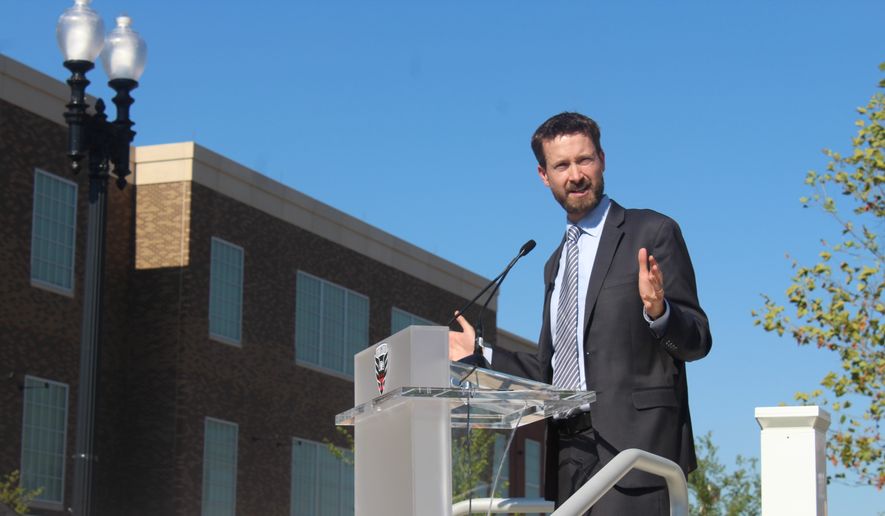The D.C. Council gave overwhelming preliminary approval Tuesday to a sweeping campaign finance reform bill.
The “Campaign Finance Reform Act of 2017” would bar businesses from contributing to city campaigns if they hold contracts with the D.C. government worth a combined total of $250,000 or more.
The legislation also would prevent contractors from contributing to any council members’ campaigns who oversee pending contracts with their companies.
Council member Charles Allen, Ward 6 Democrat and the bill’s sponsor, said it aims to curb corruptive influences in government by restricting campaign contributions.
The council passed the bill in an 11-0 first vote. Democratic members Brandon Todd (Ward 4) and Kenyan McDuffie (Ward 5) abstained from Tuesday’s vote, citing opposition to the legislation.
Mr. Todd said he was “concerned that we’re embarking on a policy that will selectively disenfranchise” some D.C. residents in order “to fight a feeling of impropriety, not a reality.”
Gesturing to his colleagues on the dais, Mr. McDuffie said the fact that some lawmakers had won their elections despite being out-raised by incumbents proves that voters can “see through” the “pay-to-play” culture.
The bill, No. 22-107, would build on the Fair Elections Act of 2017, which Mr. Allen also introduced and the council passed in February. The Fair Elections Act enables candidates to receive matching 5-to-1 campaign donations with public funds if candidates pledge to accept contributions only from individuals under $50 beginning in the 2020 elections.
“Taken together, these laws would be a significant overhaul of how candidates run for office and give District residents a far more powerful voice in selecting their leaders and holding them accountable,” Mr. Allen said in a statement Tuesday.
Council member Trayon White, Ward 8 Democrat, said he disagreed with portions of the bill but ultimately supported it because of his experience in defeating then-incumbent LaRuby May, who outraised his campaign 8-to-1 in 2016.
“The constant thing I keep hearing was that, ’I don’t trust politicians. I don’t trust what’s going on D.C.,’” he said. “It was an issue for me.”
Accusations of pay-to-pay culture dogged the city’s 2018 election after Mayor Muriel Bowser threw her support behind Democratic candidate Dionne Reeder in a bid to unseat council member Elissa Silverman, at-large independent.
Ms. Reeder’s campaign was running dry in August, with only $2,000 left in the bank, according to campaign finance reports. By mid-October, the challenger had drummed up $192,000, mostly from businesses, after the mayor endorsed Ms. Reeder and organized fundraising events.
Miss Bowser herself donated $200 to the Reeder campaign, and three of her staff members each donated $500.
Ms. Silverman won the re-election Nov. 6 with 12,000 more votes than Ms. Reeder.
Council Chairman Phil Mendelson, at-large Democrat, said that some people were “very quick” to make pay-to-play accusations after his championing the repeal of Initiative 77, which voters had passed in June’s primary elections to raise the city’s minimum wage for tipped workers.
He said there’s a misconception that “that contributions are what make the decisions, when often times the contributions reflect one’s politics.”
Bill 22-107 also would remove the city’s Campaign Finance Board from the D.C. Board of Elections and establish it as an independent office that can enforce the new campaign contributions restrictions.
In October, Chief Financial Officer Jeffrey S. DeWitt reported that the staffing costs to hire attorneys for the new office would increase the legislation’s cost to $4.2 million over the next four years.
The Campaign Finance Reform Act of 2017 must pass another vote in the council before it can become law. The legislation is expected to undergo revisions between that vote.
The bill then would need to be signed by the mayor and approved by Congress before becoming law.
• Julia Airey can be reached at jairey@washingtontimes.com.




Please read our comment policy before commenting.